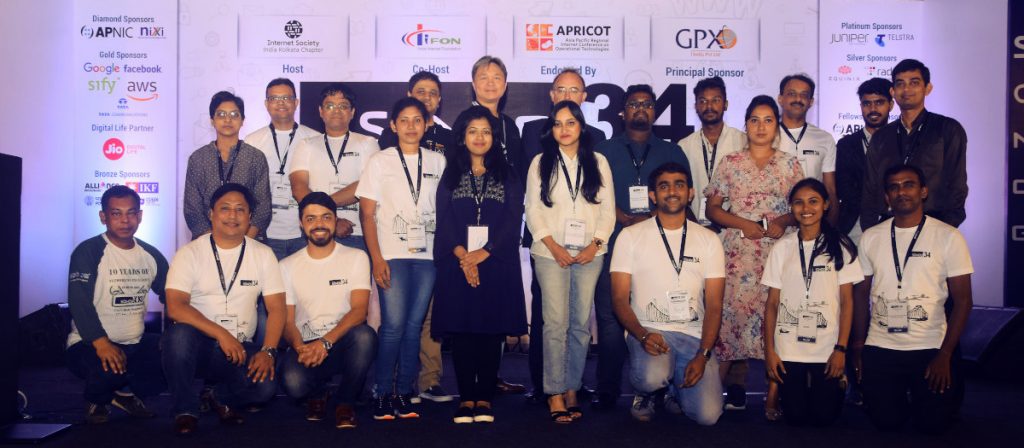Author Archives: Amrita Choudhury
Author Archives: Amrita Choudhury

A growing group of international and local cybersecurity and policy experts are weighing in on proposed changes to Indian regulations that could jeopardize the safety of billions worldwide. By seeking to restrict WhatsApp and other popular messaging apps’ use of end-to-end encryption, the proposed policies pose a major threat to cybersecurity in India.
In Traceability and Cybersecurity, over 50 cybersecurity experts in Europe, North and Latin America, Africa, and the Asia-Pacific region agreed that amendments to the Information Technology (Intermediaries Guidelines) Rules under the Indian Information Technology Act proposed by the Indian Ministry of Electronics and Information Technology (MeiTY) will create many more problems than it seeks to solve.
Produced as a result of a global technical experts meeting series organized by the Internet Society in partnership with Medianama, the report notes that MeiTY’s proposal ignores sound advice: requiring intermediaries such as WhatsApp to enable the traceability of the content and data they handle is a major threat not only to the safety of users, but to India’s national security.
The report stresses that traceability would mean enabling third-party access to private communications, a move that undermines the end-to-end encryption that users everywhere, including government entities, rely on to Continue reading

At the recently concluded 34th South Asia Network Operators Group (SANOG 34), it was interesting not only to hear about the evolution of digital infrastructure, technology, and the economy in South Asia, including the opportunities it presents to network operators, but also to hear how community-led national Network Operating Groups (NOGs) in South Asia are working to build technical community knowledge, capacity, and engagement in their respective economies.
SANOG, which was set up as a sub-regional, community-led initiative in 2003, has played a significant role in bringing operators from the region together for knowledge sharing and cooperation. It is a biannual event, rotated among economies for maximum reach and participation.
While the NOGs of developed economies in the Asia Pacific began forming in the late 1990s, the NOGs in South Asia are quite recent: Bangladesh (bdNOG) and Bhutan (btNOG) were set up in 2014; Nepal (npNOG) in 2016; Sri Lanka (LKNOG) in 2017; and India (INNOG) in 2017.
The objectives of these NOGs are to encourage knowledge sharing within their respective economies and discuss global and regional technical developments, while addressing local requirements and issues. This, in turn, helps members Continue reading

The Indian government’s Department for Promotion of Industry and Internal Trade has released a draft of the National e-Commerce Policy for public comments by 29 March 2019. The CCAOI, with support from the Internet Society India Delhi Chapter, organized a webinar to discuss the draft policy on 18 March. The objective of the discussion was to inform various stakeholders of the provisions of the draft policy and highlight issues of concern. Watch the recording here.
The session was moderated by Subhashish Panigrahi and myself. It was attended by over 45 participants from different stakeholder communities across the country. The speakers that participated in the session were Devika Aggarwal from NASSCOM, Ankit Anand from Reliance Jio, Nikhil Pahwa from MediaNama, Parminder Singh from IT for Change, and Dr. Mahesh Uppal from ComFirst (India) Private Limited.
To kick off the webinar, Smitha Krishna Prasad of the Centre for Communication Governance at the National Law University presented an overview of the draft policy, following which the speakers shared their perspectives on the draft policy. Towards the end of the webinar, speakers answered questions from the participants in a lively and interactive Q&A session.
Some of the key issues discussed were on the Continue reading

On 10 January, the Internet Society Delhi Chapter and CCAOI jointly organised an interactive webinar on the draft Information Technology [Intermediary Guidelines (Amendment) Rules] 2018 (“the draft Intermediary Rules”) to improve understanding of it and to encourage members and other Indian stakeholders to submit their comments to the Ministry of Electronics and Information Technology (MeitY) during their public comment period. The draft Intermediary Rules seeks to modify Section 79(2)(c) of the Information Technology Act, 2000 (the IT Act). Section 79 of the IT Act introduces obligations for intermediaries to meet to gain exemption from liability over the third-party information that they “receive, store, transmit, or provide any service with respect to.” These proposed changes were developed by MeitY to try to address misinformation and harmful content on social media, which have been connected with lynching and other recent violent acts of vigilantism.
The session was moderated by Subhashish Panigrahi, chapter development manager for Asia-Pacific at the Internet Society, and Amrita Choudhury, treasurer of the Internet Society Delhi Chapter and director of the CCAOI.
The changes to the IT Act proposed in the draft Intermediary Rules would require intermediaries to provide monthly notification to users on content they should not share; ensure that the originator Continue reading
The Internet has helped to empower communities of across the globe. However, existing gender disparities, discrimination, and inequalities, especially faced by women living in the Global South, including the least developed countries, has had a considerable impact on the digital gender divide, leading to the digital exclusion of women.
A study “Views & Perspectives on Gender Rights Online, for the Global South”, was undertaken by Amrita Choudhury, CCAOI & Asia Pacific lead for the Internet’s Society SIG Women and Nadira AL Araj, ISOC Palestine and MENA Civil Society activist, to identify the main challenges towards improving the gender access and rights online, especially in the Global South; highlight the best practices which nations or regions have adopted to overcome those challenges; and suggest policy areas which need reforms.
In addition to relying on secondary sources, the opinions of 19 experts from 15 countries and responses of 162 people from 54 countries were sought. The findings were further discussed and validated through a workshop at the Internet Governance Forum (IGF) 2017 “Redefining Rights for a Gender Inclusive Connected Future (WS 102) and then compiled into a report.
The top challenges identified across the Global South hampering the creation Continue reading